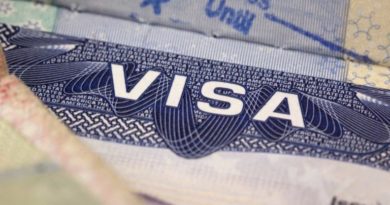COLUMN: PHNOM PENH- Cambodia: Between ‘democracy’ and ‘development’
.
.
Cambodia has a vision to become an upper-middle-income country by 2030 and a high-income economy by 2050. Nonetheless, this vision has met many distractions both domestically and internationally. Many expectations and concerns have been expressed relating to Cambodia’s future, as a vibrant democracy with a flourishing economy.
Despite being a fast growing economy and great achiever of the Millennium Development Goals (MDGs), Cambodia is still a young country in terms of demography and state building. These structural challenges cannot be taken for granted.
For instance, while health insurance is a matter of course for many countries, the public health insurance system in Cambodia is still in its nascent stage after its establishment in 2016 under the National Social Security Fund. This March, Cambodia just launched the construction of its first ever expressway linking Phnom Penh to Sihanoukville port. In Southeast Asia, Cambodia is probably the last country to have an expressway.
ADS by Cloud 9:
– SPACE RESERVE FOR YOUR ADVERTISEMENT –
.
.
In terms of demography, almost half of the population had been wiped out due to wars, putting the country into an extreme shortage of capable middle management in the 40 to 50 age category in both the private and public sector. This middle management is very critical for the current stage of Cambodia’s development and lack of this is causing structural underperformance.
As Cambodia endeavours to realise its ambitious vision, the country is currently struggling between perceptions that either puts first “democracy” or “development”. The perennial question is which should come first?
When the government keeps explaining the state of democracy and human rights of the country, the opposition group keeps pushing foreign governments and parliaments for various forms of diplomatic and economic pressures and punishments.
When the country is fighting the war of perception on whether Cambodia is democratic enough, the country struggles physically to build its water treatment system in Preah Sihanouk province to prevent sewage flowing directly to the sea or to save Boeung Trabek sewage canal from overflowing with garbage right in the middle of the capital Phnom Penh.
When the EU is pressing Cambodia on the Everything-but-Arms (EBA) issue, the country is struggling to find alternatives to cope with drought that is causing shortages of water and electricity. When some countries assure Cambodia of non-interference, some are seeking reversal of the Supreme Court’s decisions. Some people even have politicized the comments made by His Majesty the King.
ADS by Cloud 9:
– SPACE RESERVE FOR YOUR ADVERTISEMENT –
.
.
The dilemma and ironies that Cambodia is facing seems troubling.
As a matter of fact, Cambodia needs both democracy and development but striking a balance is extremely hard especially when external actors are involved. One argument suggests that in order to become a vibrant democracy, Cambodia needs to build a “safe democracy” with a “credible opposition”. The definition of a “safe democracy” and “credible opposition” can vary but it needs to address both angles of the discussion.
“Safe democracy” should be a democracy that is safe for the opposition or groups of different persuasions and ideologies to express themselves without persecution. However, on the other hand it should also be a democracy that is safe from foreign interference and undemocratic regime change.
“Credible opposition” should mean an opposition that can provoke policy-based civilized dialogues in parliament instead of provoking street riots and vandalism. Real democracy is exercised in the National Assembly through policy consultation and debates, and not on the streets.
Extremist ideologies that incite class struggle, rebellion against state authorities, anti-Chinese and anti-Vietnamese racism, a revision of private ownership, revisionist approaches on borders in contrary to the principles of Uttis Possidetis and international laws shall be strictly prohibited.
ADS by Cloud 9:
– SPACE RESERVE FOR YOUR ADVERTISEMENT –
.
.
Amid such distraction, Cambodia needs to be focused more on its own vision of building a prosperous country that benefits all sectors of society. In the meantime, Cambodia also needs to continue improving social justice and inclusiveness, building a safe democracy with a credible opposition not because other countries say so but because its Constitution requires it.
Cambodia needs to be consistent in its principal positions and stay firm with regards to its independence and sovereignty on its democratic path. Building a mature democracy is a long-term process which requires participation from the people and all political parties.
International communities should continue to extend support to Cambodia’s “longest peace in modern history”, evolution towards peaceful and safe democracy and progress towards inclusive and sustainable development.
Regime change should not be an indicator of success or key performance index for any diplomatic missions. What Cambodia really needs now is to maintain high economic performance so that the middle class will become the key driving force in sustaining socio-economic development as well as strengthening democratic foundations. Social justice, the foundation of peace and stability, will need to be improved and judicial reform is a matter of urgency.
Sim Vireak is strategic advisor to Asian Vision Institute (AVI) based in Phnom Penh.














